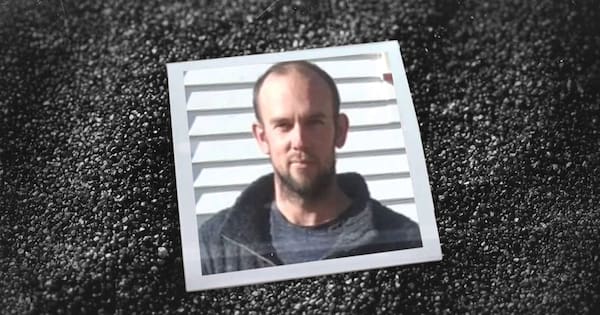Since the late 1980s, there has been a secret society at the University of Otago, Emeritus Prof John Tagg says.
Its membership has comprised entire year groups of students, all communicating by way of a subtle tap to the nose around and about campus.
Everywhere he goes today, Prof Tagg says he still gets people tapping their noses in his direction.
When he first started teaching in the microbiology department, in 1975, he had tried to do the job seriously, like everyone else.
“And it just wasn’t working for me.
“So I started introducing the ‘Blis Secret Society’ and a bit of frivolity into the lectures, and we had big lecture classes then.”
This “secret society” was for anyone who believed in the premise that prevention was better than a cure.
If they agreed with this sentiment, he urged his students to “give a tap to the nose” whenever they saw him around campus, Prof Tagg said.
“We had a whole few years of first-year students who were nose tappers.
“I’d be walking around campus and often students would give a nose tap, and I would subtly give a nose tap back.
“And I still use the nose tap — and even some of the senior staff around campus and vice-chancellors, when they see me, recognise me, give a nose tap.”
Over time, and with the development of his Blis probiotic, the gesture also took on the message “may the Blis be forever with you”, Prof Tagg said.
“That’s my way of recognising and bestowing on them the wish that if they take the probiotic, may it be forever with you.
“And that’s what we hope too, that the product will spread, and it is spreading.
“That is, I guess, why it’s been able to survive 25 years.”
BLIS Technologies, the Dunedin company that shares its name with this probiotic, marked its 25th anniversary last month.
The company is supported by global partners across five continents — in countries including China, Japan, South Africa, South Korea and Uzbekistan — and has customers in more than 70 countries.
It began following the discovery of its now flagship product, Blis K12 — used to treat streptococcal infections, bad breath, ear infections, Candida infections among the elderly and protect against rheumatic fever.
Blis K12 was still the “centrepiece” of the business, Prof Tagg said.
“It’s kind of freaky for me to see how this little bacterium has travelled so far and has achieved so much and has really supported employment for so many people in Dunedin for so many years.
“It’s very gratifying.”
It was in 1956, just after the Summer Olympics in Melbourne, that Prof Tagg had his first encounter with Streptococcus pyogenes — a bacteria which causes strep throat.
The then 12-year-old developed rheumatic fever and for the next decade had to take penicillin to prevent further bacterial infections.
The routine was a “daily reminder” of being different.
“Mostly, it’s administered during the teenage years, which is unpleasant because you’re taking penicillin every day.
“So you’re smelling like a mushroom every time you go to the toilet or every time you sweat.
“And that’s not cool for a teenager.”
For him, the infection affected his joints and caused a lot of pain.
But for many other children, it could affect their heart valves and meant “constant surveillance” for signs of failure.
Damage to the heart valves could cause death — which still happened to a lot of children around the world, as there was still no vaccine against S. pyogenes, Prof Tagg said.
New Zealand had a bad record for rheumatic fever, and was really struggling to protect particularly Māori and Pacific Island children against the disease.
It was a coincidence that, years later, one of his teachers at the University of Melbourne had an interest in probiotics and introduced him the concept of using “so-called good bacteria to fight off the bad ones”.
With this came a “eureka moment”, and he was hooked.
“It became my own obsession.
“I don’t know what I would have done if I hadn’t been to that lecture. I would not have known about probiotics at that stage.”
A few years before joining the University of Otago, the landmark Dunedin Study was launched — which he used as inspiration to conduct his own “mini Dunedin Study”, Prof Tagg said.
Come 1985, he had recruited close to a hundred 5-year-olds from schools around Dunedin, whom he monitored throughout the entirety of their primary schooling for the occurrence of streptococcal infections.
He wanted to see if there were any children who did not naturally contract the infection, and to discover what the microbiological explanation for that might be.
That led him to child number 12, at Kaikorai Primary School — or “K12”.
He observed the child appeared to have a history of not catching the infection, and isolated within their saliva a strain of bacteria which later came to be known as Blis K12.
Shortly before the year 2000, the university was approached by the late Dunedin businessman Howard Paterson, who was looking to invest in startup companies.
Staff were asked if they had anything of commercial interest, and Prof Tagg volunteered his discovery.
His findings had not yet been published, so a patent for the Blis K12 molecules was put in place and the company was established soon after — its first chief executive the now recently retired former Otago MP David Parker.
The concept of using probiotics as a preventive method had, back then, been ahead of its time, Prof Tagg said.
Since then, it had gained “a lot of traction worldwide”.
“It’s almost surreal to see that it’s done so well and spread so far.
“More and more companies are being established and pursuing the probiotic theme, so that puts a little bit of pressure back on us at Blis to make sure we stay ahead.”
Being the first to patent the strain had been helpful, but the company could not rest just on its laurels, he said.
There had to be new applications, and he was interested in finding something better than the existing strains.
While he still had the time, and the company still had the patience to keep letting him tinker in his laboratory, he would continue to test the streptococcal strains in his “own way”, he said.
“Some people collect stamps, some people collect coins — I collect bacteria, probiotic candidates.
“And hopefully, there’s a few years left in me to test them in my own way and try to find the next generation that will complement or will supersede K12.”













